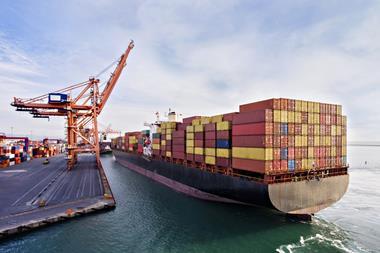Supply chain resilience is better built through diversification and ’substitutability’, argues IMF
The International Monetary Fund’s (IMF) World Economic Outlook has warned that efforts to onshore and reshore in an effort to avoid further supply chain disruption is likely to be “misguided”.
Global trade needs more diversity, not less, it argues.
The IMF analysed two options for building supply chain resilience: diversifying inputs across countries, and greater substitutability of inputs (how easily a producer can switch inputs from a supplier in one country to another).
It found that diversification significantly reduces global economic losses in response to supply disruptions and reduces volatility when multiple countries are hit by supply shocks.
However, diversification offers little protection when a major disruption hits all economies at the same time, such as in the first four months of the pandemic.
Further, IMF research suggests that countries and sectors have substantial room to diversify away from domestic sources in favour of international suppliers.
Firms in the Western Hemisphere currently source 82 percent of their intermediates domestically, far above a benchmark of 31 percent that reflects the concentration of world production.
“This points to a sizeable ‘home bias’ in the sourcing of intermediates,” notes IMF. “One important implication of this home bias is that any reshoring of production would lower diversification even further, thereby increasing concentration risk.”
”Fuller analyses of reshoring find that this increased concentration would indeed result in more volatile economic activity, even after the economy adjusts structurally by expanding some sectors and shrinking others.”
Substitutability can be achieved in two ways: through greater flexibility in production or by standardizing inputs internationally.
IMF points to General Motors as an example. The manufacturer recently announced that it was working with semiconductor suppliers to reduce the number of unique chips that it uses by 95 percent, down to just three families of microcontrollers. This standardisation will eliminate the costs of substituting between them.
Considering a scenario of a 25 percent labour supply contraction in a large global supplier of intermediate inputs, the IMF found that with greater substitutability, GDP losses in all countries (other than the source country) are reduced by about four-fifths.




















No comments yet